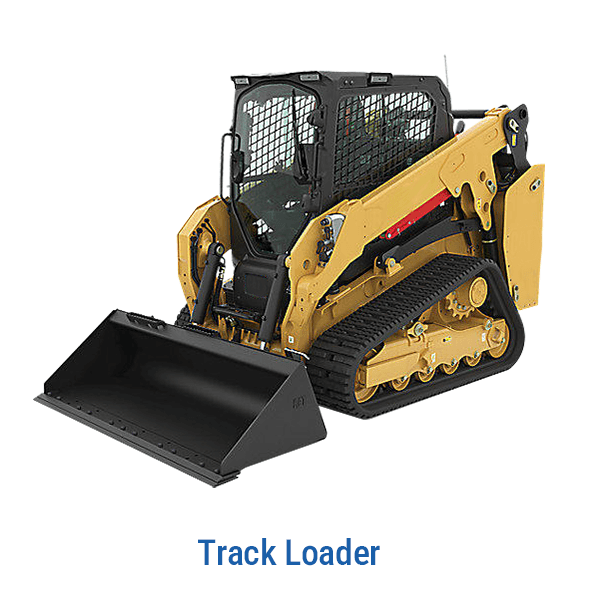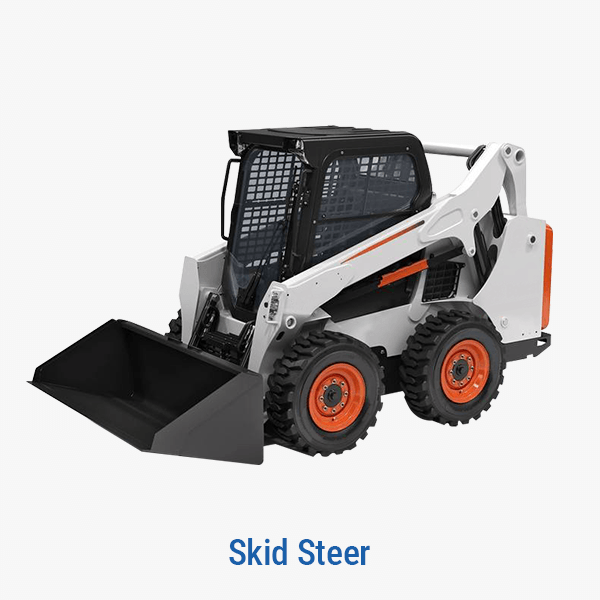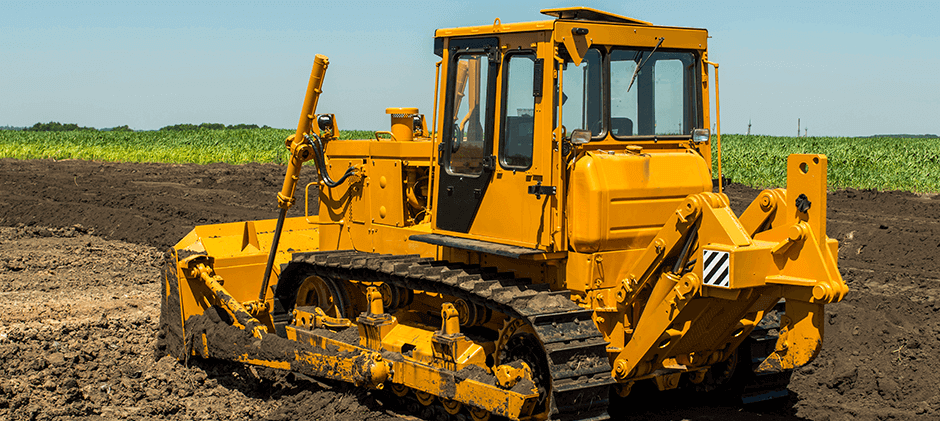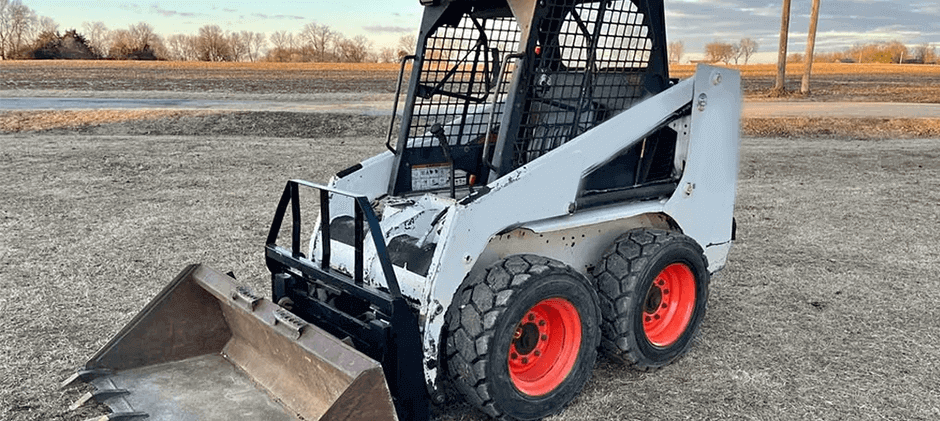Many people assume that track loaders and skid steers are interchangeable, but they actually serve different purposes on a job site. At very first glance, they do look alike. They are both compact equipment, and they have a small turning radius. But if you are trying to choose between a track loader or a skid steer, it is important for you to understand their differences. The two types of machinery excel in different environments—track loaders perform well on soft, uneven ground, while skid steers are better suited for hard, compact surfaces. If you are a contractor, farmer, or landscaper unsure which machine fits your needs, this guide will break down their key features, advantages, and best-use scenarios to help you make the right choice.


What’s the Difference Between a Track Loader and a Skid Steer?
Both machines are capable of performing similar tasks, but key differences set them apart. To help you determine which one suits your needs best, let’s break down their distinctions in detail.
Mobility & Terrain Adaptability
Track loaders have a clear advantage when it comes to mobility on soft, uneven, or muddy terrain. Their wide tracks distribute weight more evenly, reducing ground pressure and preventing sinking. This makes them ideal for wet or unstable conditions, such as forestry work or construction sites with loose soil.
On the other hand, skid steers perform best on firm, solid ground. Their wheeled design allows for greater speed and agility, making them well-suited for paved roads, concrete surfaces, and compacted job sites. If your work requires frequent movement across stable terrain, a skid steer is the more efficient option.
Operating Costs & Maintenance
When considering long-term expenses, track loaders generally require more maintenance than skid steers. The rubber tracks wear out faster than tires, and replacing them is more costly. Additionally, track loaders have more undercarriage components that require regular inspection and servicing.
Skid steers, in contrast, have simpler maintenance needs. Their tires are easier and cheaper to replace, and they tend to last longer under normal working conditions. If minimizing maintenance costs is a priority, a skid steer may be the better investment.
Speed & Maneuverability
Speed is another significant factor when comparing these two machines. Skid steers are faster due to their wheeled design, making them ideal for jobs that require quick movement between work areas. Their ability to make tight turns also enhances their maneuverability in confined spaces.
Track loaders, while powerful, are slower due to the additional friction created by their tracks. However, this trade-off is necessary for stability and traction on challenging terrain. If your work involves navigating rough ground rather than covering large distances quickly, a track loader may be more practical.
Pros and Cons of Track Loaders vs. Skid Steers
| Feature | Track Loader | Skid Steer |
|---|---|---|
| Traction | Excellent on soft, uneven terrain | Limited on loose or muddy ground |
| Speed | Slower than skid steers | Faster on hard surfaces |
| Maneuverability | Less agile in tight spaces | Highly maneuverable |
| Maintenance | Higher costs due to track wear | Lower costs with tire replacements |
| Ground Impact | Low ground disturbance | Higher impact on surfaces |
| Cost | More expensive upfront & to maintain | Lower initial and maintenance costs |

Key Factors to Consider Before Choosing
I believe that with the illustration of the difference, you have a vague judgment about which machinery to choose. To help you make wise choices, here are some major considerations to clarify your needs.
Working Terrain
The type of terrain you work on should be the primary factor when deciding between a track loader and a skid steer. If your job site consists of hard, compact surfaces like asphalt or concrete, a skid steer is the better choice due to its speed and maneuverability. However, if you frequently work on wet, muddy, or loose ground, a track loader provides better traction and prevents sinking.
Cost (Initial & Long-term)
Track loaders tend to have a higher initial cost compared to skid steers. Additionally, maintaining tracks is more expensive than replacing tires. However, if you often work in conditions where tracks provide a significant advantage, the long-term benefits may outweigh the costs. Renting can be an alternative if you only need a track loader for specific jobs, while skid steers offer a more budget-friendly solution for daily use.
Durability
Usually speaking, skid steers generally last longer than track loaders due to their simpler undercarriage system. Rubber tracks wear out faster than tires, and replacing them is more costly. However, proper maintenance and usage can extend the lifespan of either machine. If longevity is a priority, consider the operating environment and upkeep requirements before making a decision.

Popular Track Loader Models
Several manufacturers offer high-performance track loaders designed for different applications. Some popular models include:
- Caterpillar 299D3
- Bobcat T770
- John Deere 333G
- CASE TR340B
Popular Skid Steer Models
For those leaning toward a skid steer, here are some top models worth considering:
- Bobcat S650
- Caterpillar 262D3
- John Deere 320G
- New Holland L328
Tractor & Skid Steer FAQs
What’s Better, a Skid Steer or a Track Loader?
There is no fixed answer to the question. It depends on your needs. If you work on rough, uneven terrain, a track loader is better. If speed and maneuverability on hard surfaces are priorities, a skid steer is the way to go.
What are the Disadvantages of Skid Steer Loaders?
While skid steers are versatile and cost-effective, they have drawbacks. Their tires limit traction on soft or loose ground, and they can cause damage to delicate surfaces. Additionally, their ride can be rougher compared to track loaders.
What is the Advantage of the Skid Steer Over a Normal Loader?
Skid steers are smaller and more maneuverable than traditional loaders. They can fit into tighter spaces and offer quicker attachment changes, making them more versatile for multiple job types.
Conclusion
Your jobsite condition, budget, and long-term maintenance are the 3 main considerations when choosing between a track loader and a skid steer. Track loader is more suitable for soft terrain and heavy-duty applications. While skid steers offer high speed, agility, and cost-effectiveness on hard surfaces. Remember that no matter what kind of machinery you own or you decide to buy, FridayParts covers the repair work for you. We provide skid steer parts and track loader parts at a very fair price, and the quality is also the last thing you should be worried about as we dig ourselves in aftermarket parts for years. Also, if you have any questions on agricultural equipment repair or construction machinery updates, you have our promise that professionalism is something we stick to. Follow the FridayParts blog for more practical advice!
